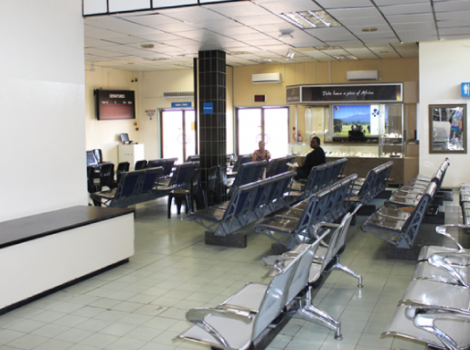
30 December 2024
In a landmark decision, the Ghanaian Government has announced a new visa-free entry policy for nationals from all African countries. The policy, formally approved by President Nana Addo Dankwa Akufo-Addo on December 18, 2024, aligns with the country’s ongoing efforts to promote unity, ease travel across the continent, and foster regional cooperation. This bold move, set to be implemented before the president’s term ends on January 7, 2025, is a significant step forward in Ghana’s commitment to breaking down barriers to free movement within Africa.
Joining league of visa-free nations in Africa
With the introduction of this policy, Ghana becomes the fifth African nation to offer visa-free travel to African passport holders, joining Rwanda, Seychelles, The Gambia, and Benin. Ghana had previously extended visa-free access to citizens from 26 African nations and offered visas on arrival to nationals from 25 others. Only two African countries required a visa to enter Ghana before this new initiative. The policy solidifies Ghana’s position as a leader in promoting intra-African travel and integration, ranking fifth in Africa for policies encouraging free movement.
Fulfilling commitments made at the Africa Prosperity Dialogues
This decision fulfills a commitment made by President Akufo-Addo during the Africa Prosperity Dialogues in January 2024. The policy aims to strengthen the goals of the African Union’s African Continental Free Trade Area (AfCFTA), headquartered in Accra. By reducing travel restrictions, Ghana hopes to enhance economic cooperation, boost intra-African trade, and foster cultural exchange among member states.
Boosting tourism through the Beyond the Return Campaign
The introduction of the visa-free policy also aligns with Ghana’s broader efforts to position itself as a premier destination for tourism. The Ghana Tourism Authority has launched a temporary Non-Pre-Approval Visa scheme from December 1, 2024, to January 15, 2025, as part of the “Beyond the Return” campaign. This initiative aims to reconnect Africans and members of the diaspora with their heritage while promoting economic collaboration and boosting tourism revenue.
The campaign builds on the success of the 2019 “Year of Return” initiative, which attracted thousands of visitors from the African diaspora to Ghana. By easing entry requirements, the country aims to sustain this momentum and establish itself as a hub for cultural heritage tourism in Africa.
Addressing visa challenges across the continent
Despite Ghana’s progressive stance, visa restrictions remain a significant challenge in many African countries. According to the African Development Bank, stringent entry requirements in nations like Libya, Equatorial Guinea, and Sudan continue to hinder trade, tourism, and cultural exchange. These restrictions often contrast starkly with the visa-free access that some non-African countries enjoy in various African nations, highlighting the need for more cohesive travel policies within the continent.
The disparities in visa policies underscore the importance of initiatives like Ghana’s, which aim to bridge gaps and facilitate seamless movement across Africa. By leading the way, Ghana sets a strong example for other nations to follow, potentially catalysing broader policy changes across the continent.
Economic and regional implications
The visa-free policy is expected to yield significant economic benefits for Ghana and the wider region. By promoting free movement, the policy facilitates the exchange of goods, services, and expertise, aligning with the AfCFTA’s objectives to create a single market for African nations. Increased mobility is also anticipated to boost tourism, a key driver of economic growth, by attracting more visitors from across the continent.
Moreover, the policy reinforces Ghana’s commitment to regional unity and integration, addressing long-standing barriers to collaboration among African nations. By easing travel restrictions, Ghana positions itself as a leader in fostering economic cooperation and cultural exchange, strengthening its role within the African Union.
Preparing for implementation and future steps
As the policy’s implementation date approaches, Ghana is taking steps to ensure a smooth transition. The Ghana Immigration Service is expected to roll out guidelines and procedures to facilitate the visa-free entry of African nationals. Training programmes for immigration officials and border personnel are underway to address potential challenges and ensure compliance with the new regulations.
The government is also engaging with stakeholders, including airlines, tour operators, and tourism authorities, to maximise the policy’s impact. Collaborative efforts aim to promote Ghana as a destination of choice for African travellers and leverage the policy to attract investment and foster economic growth.
Conclusion
Ghana’s decision to introduce a visa-free entry policy for African nationals marks a significant milestone in the country’s journey toward regional integration and economic cooperation. By removing barriers to free movement, Ghana not only strengthens its ties with other African nations but also aligns itself with the broader goals of the AfCFTA and the African Union. As the policy takes effect, it holds the promise of fostering unity, boosting tourism, and driving economic growth, setting a powerful example for the rest of the continent.




This is a welcome development.